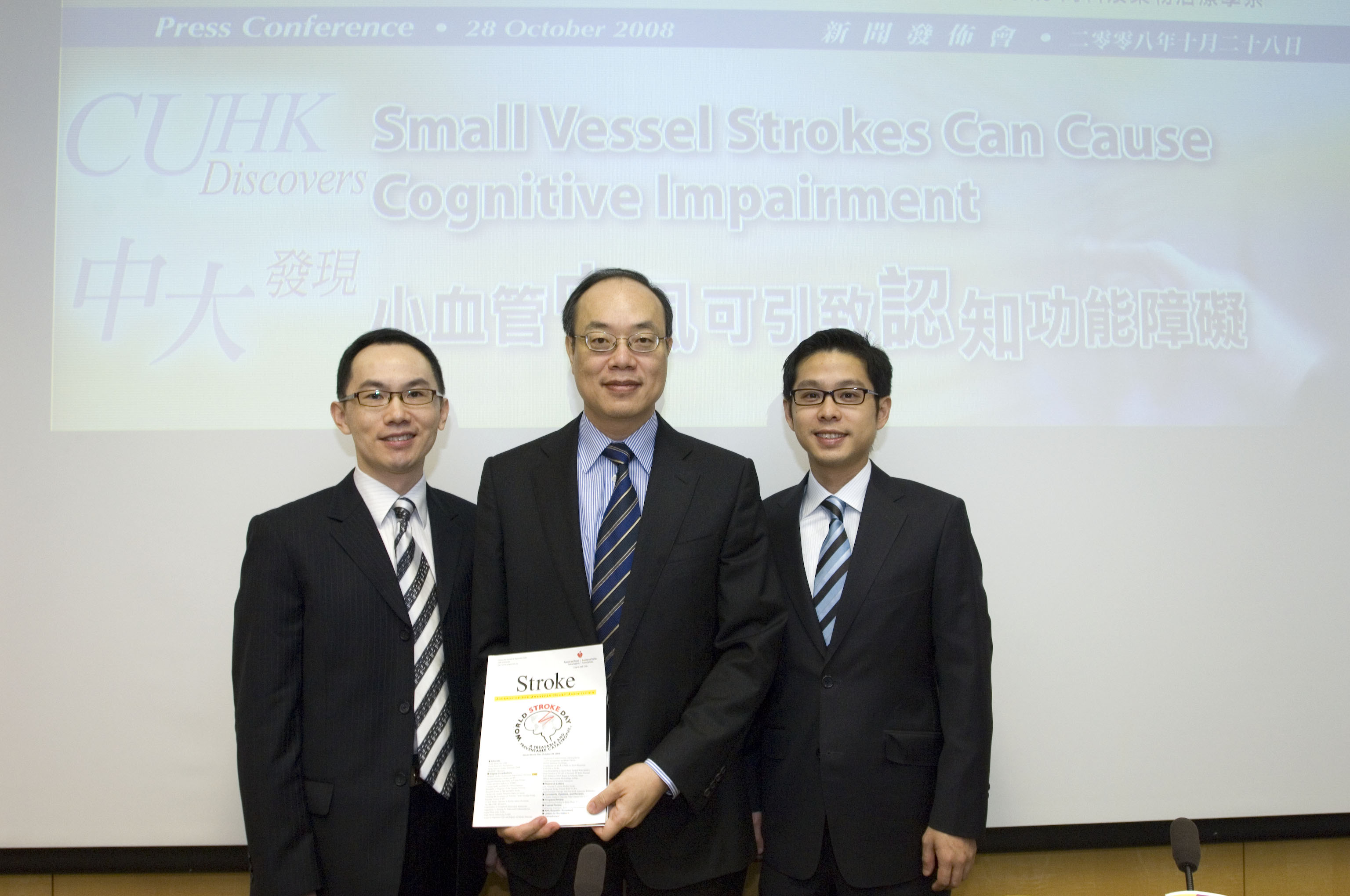CUHK
News Centre
CUHK Discovers Small Vessel Strokes Can Cause Cognitive Impairment
Small vessel disease (SVD) affects the small blood vessels that supply the subcortical areas of the brain and may cause ‘little strokes’ that account for a quarter of ischemic stroke cases. While these SVD strokes are relatively mild in terms of mortality and physical disability when compared with other stroke subtypes such as large artery strokes, it is associated with a plethora of cognitive consequences.
However, SVD does not necessarily cause clinical strokes. Population studies have shown that up to 23% of stroke-free, community-dwelling persons of 65 years of age or older have SVD but no strokes. This is 5 times more common than SVD strokes. Recent studies have shown that SVD patients without strokes also exhibit subtle cognitive difficulties that may progress overtime. SVD is the most common cause of vascular cognitive impairment (VCI), which in turn is the second most frequent cause of dementia in the elderly population.
Since 2002, the Department of Medicine & Therapeutics at The Chinese University of Hong Kong (CUHK) and the S.H. Ho Cardiovascular Disease & Stroke Centre have actively studied VCI in nearly 300 Chinese SVD patients. In a study involving a consecutive cohort of 75 SVD stroke patients with an average age of 71, it was shown that 52% had complaints of cognitive decline 3 months after the stroke. Among these patients with cognitive complaints, 72% had mild cognitive impairment and 28% had dementia. On neuropsychological testing even those without cognitive complaints have poorer general and executive cognitive test performance then stroke-free control subjects. Executive cognitive function impairment accounts for difficulties in performing complex tasks such as handling money and managing medications in these patients and hampered their independence in daily living.
The research team is also active in developing neuropsychological instruments for early detection of VCI in local patients. It has recently translated and validated the Montreal Cognitive Assessment (MoCA) for screening for VCI in SVD patients. The MoCA is a cognitive test that examines cognitive functions commonly impaired in VCI. Patients with suspected VCI can receive this brief 10-minute cognitive test in doctor’s office or even via the telephone with a modified telephone version.
SVD can be easily and accurately detected by CT or MRI imaging. If you find yourself or your elder family members developing one or more of these problems: slow thinking and response, difficulties in managing complicated tasks such as handling money and own medications, memory decline or rigid thinking, it is time to see your doctor for an evaluation for the presence of SVD.
The World Stroke Organization proclaims the World Stroke Day 2008 on 29 October 2008. The slogan of this year is “Little Strokes, Big Trouble”. Little strokes can spell big trouble if ignored. Fortunately, stroke and VCI are both treatable and preventable.
From left: Professor Vincent Chung Tong MOK, Associate Professor, Department of Medicine & Therapeutics, CUHK Professor Lawrence Ka Sing WONG, Secretary, World Stroke Organization, Mok Hing Yiu Professor of Medicine, CUHK Dr Adrian WONG, Research Psychologist, Department of Medicine & Therapeutics, CUHK





